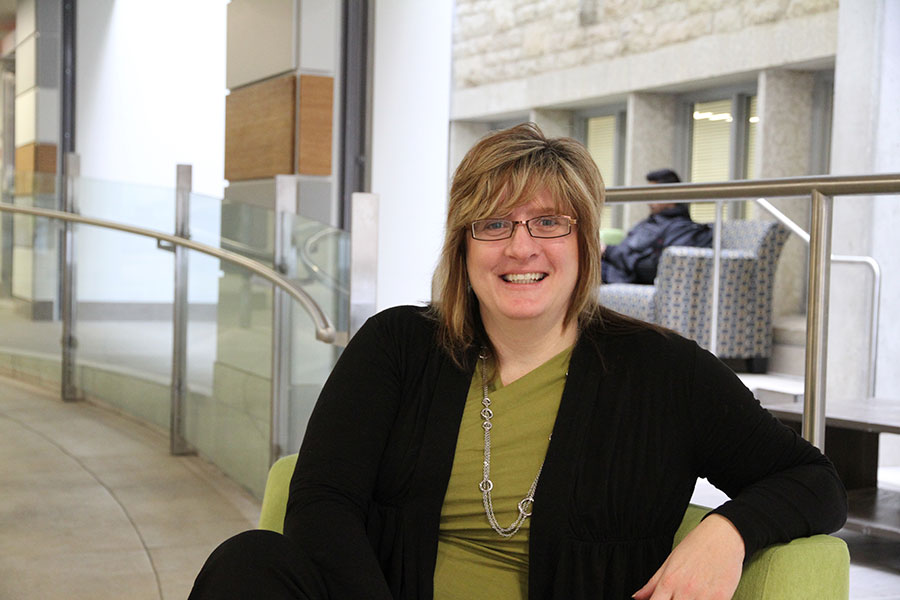Addressing students' mental health needs
The number of students using counselling services at the U of S is on the rise, and Terrie Fitzpatrick is hoping a university-wide mental health strategy will help address students’ needs across campus.
By University Communications Fitzpatrick, manager of Student Counselling Services, said that in 2012-13, the number of students seeking assistance jumped by 39 per cent, and she suspects the upward trend will continue. According to a survey conducted by National College Health Assessment (NCHA), more than 30 per cent of U of S students reported they had received help from a counselor of psychologist at some point in their life, she said.
Fitzpatrick, manager of Student Counselling Services, said that in 2012-13, the number of students seeking assistance jumped by 39 per cent, and she suspects the upward trend will continue. According to a survey conducted by National College Health Assessment (NCHA), more than 30 per cent of U of S students reported they had received help from a counselor of psychologist at some point in their life, she said.Issues of mental health, Fitzpatrick explained, are more acute for students because of a number of university-specific factors including pressure to perform, financial and academic pressures, culture shock, self-esteem issues, social anxiety and relationship problems, to name just a few.
"Often times, students are juggling multiple concerns which can cause higher levels of stress, and sometimes distress," she said. "More students are reporting feeling overwhelmed, lonely and sad, which impacts their academic performance."
Another reason for the increase in students seeking help—more than 3,500 appointments in the last academic year—is the move to Student Counselling Services to the Place Riel addition. "Our visibility changed and so did the number of student contacts."
To meet the demand, counselling switched to a triage model, "increasing student access to clinical assessments and counseling," she said. "Because of that increased access, more students are seeking assistance when in crisis."
While already at capacity for counselling services, "we are becoming increasingly aware that the number of student contacts, students in crisis and counselling sessions—not surprisingly—coincide with stressful points in the academic year." These include midterms, finals, and dates when students are required to withdraw from classes due to academic performance.
Another reason for the increase in students accessing services is a growing awareness about mental health across Canada. "People are talking about it," said Fitzpatrick. "Those conversations are happening more and more. The stigma is still there, but students are willing to talk about it. They are curious about mental health and wellbeing and want to know how to deal with it."
The campus community is also ready to talk about it, said Fitzpatrick, who organized a mental health summit for early March to bring together a cross section of the campus community—about 100 people in all—to discuss the issue.
"The summit was about getting the conversation started in a formal and substantial way. Lots of positive mental health projects and supports are happening on campus but there is a need for involvement at the broader institutional level."
The creation of a campus-wide strategy will involve all mental health service providers, including Student Health.
"I think the next steps are to develop a mental health steering committee to look at, what's happening across campus and write a strategy that reflects the University of Saskatchewan's specific needs around mental health and wellbeing. This should be embedded in the university's mission.
"More people are coming forward with mental-health issues and it's not going away. We need to take a big step forward institutionally because student success is one of our priorities and mental health is key to that."

